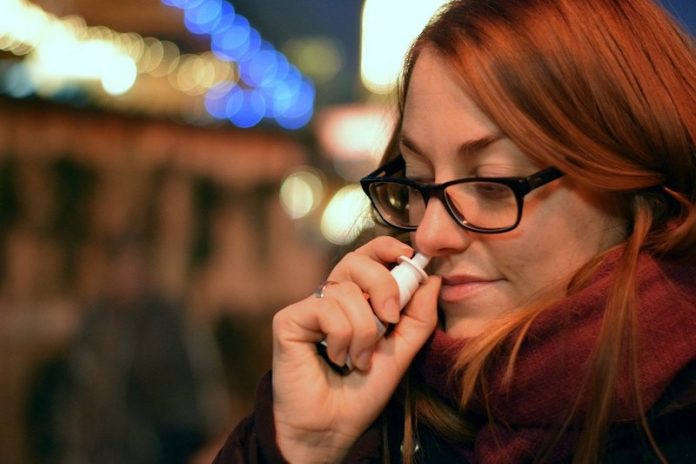
In a new study, researchers found that a nasal spray derived from algae and a plant in the tobacco family could offer a preventive measure for COVID-19.
The research was conducted by a team at the University of Pittsburgh.
Researchers are making a molecule called Q-griffithsin using an anti-viral protein found in the New Zealand red algae Griffithsia and Nicotiana benthamiana, a plant in the same family as tobacco plants.
The former has shown it can bind to other coronaviruses’ surfaces, making it unable to infect healthy cells.
According to the team, the nice thing about Q-griffithsin is that it has a number of activities against other viruses and pathogens.
It’s been shown to be effective against Ebola, herpes, and hepatitis, as well as a broad spectrum of coronaviruses, including SARS and MERS.
The team envisions a nasal spray for people at higher risk of contracting COVID-19, such as health care and emergency medical service workers, and people with weak immune systems.
While the spray wouldn’t replace any successful COVID-19 vaccines developed in the future, it could provide an effective level of defense against the coronavirus for immune-compromised individuals who can’t take vaccines.
The team says the vaccine will also be specific for this particular coronavirus, while the nasal spray can be used for a broad spectrum of diseases.
Also, given Q-griffithsin’s broad-spectrum activity against coronaviruses, it has the potential to thwart future infections.
Researchers formulated the drug into a nasal spray to fight COVID-19 because the virus typically enters through the nose and mouth, which the spray can target before it infects the lungs and creates more serious complications.
Though researchers use tobacco plants to manufacture the proteins, people who use the spray won’t receive the harmful effects associated with ingesting or inhaling tobacco.
Researchers typically regard plants as a safe production platform for biopharmaceuticals.
Rohan’s lab originally developed formulations for Q-griffithsin as a potential preventive for human immunodeficiency virus (HIV).
However, after seeing the fast spread of COVID-19, the team looked back at previous data indicating the effectiveness of Q-griffithsin against other forms of coronavirus.
One leader of the study is Lisa Rohan, a professor in the pharmaceutical sciences department.
Copyright © 2020 Knowridge Science Report. All rights reserved.



